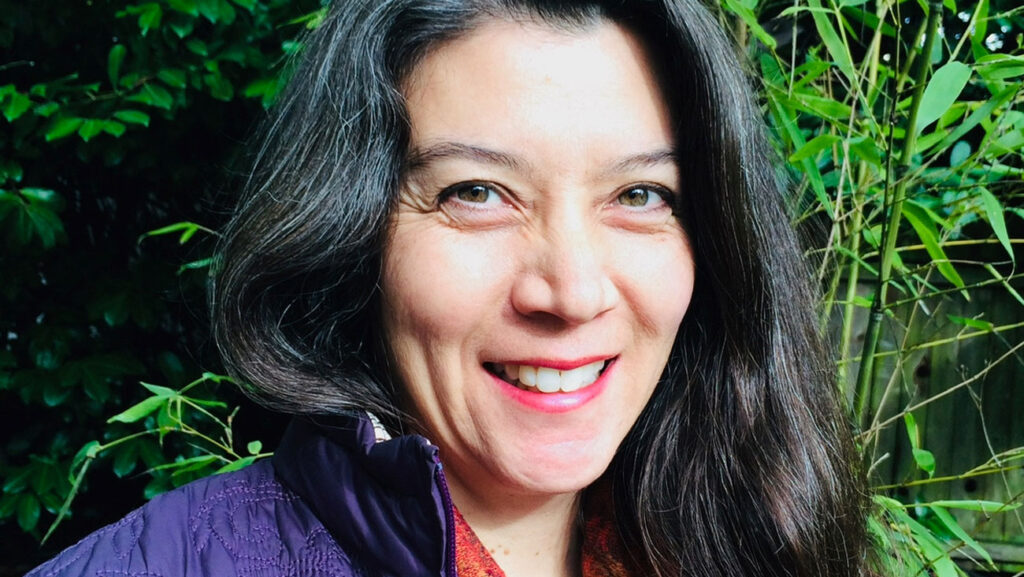The Helfgott Research Institute project focuses on qigong and classical Chinese medicine in relation to Multiple Sclerosis.

NUNM alumna Lita Buttolph (DSOM, MSIMR ‘18), a Building Research across Inter-Disciplinary Gaps Postdoctoral Fellow, started her journey into qigong and classical Chinese medicine after completing her doctorate in Rangeland Ecology. Her shift towards qigong, driven by personal health transformation, led her to embark on an academic and clinical research path.
“I got interested in Chinese medicine through qigong,” said Buttolph, who holds a Ph.D. in Rangeland Science from Utah State University. “After I finished my Ph.D., I moved to Portland and started studying the wide use of qigong. It transformed my health pretty quickly. So I kept practicing and eventually became a certified instructor.”
Buttolph then earned a Doctor of Science in Oriental Medicine (now DAcCHM) and a Master’s in Integrative Medicine Research (now MSCR) from NUNM.
Her research focuses on how qigong, a traditional Chinese practice, can improve the lives of individuals living with Multiple Sclerosis (MS). Her initial study, conducted during her master’s and doctoral programs, measured the study’s feasibility and participant mobility, gait and balance.
The study showed encouraging trends toward improved mental health, quality-of-life and reduced fatigue and depression. Several participants spontaneously reported improved energy, flexibility, sleep and mobility.
As a follow-up, Buttolph initiated a comprehensive survey of qigong instructors nationwide to understand their protocols and approaches when working with MS patients.
“I’m in the process of analyzing the data from the survey,” she said, “and I’m almost done with a manuscript that I’m trying to get published.”
Additionally, Buttolph conducted focus groups with MS patients who practiced qigong or tai chi to gain insights into the benefits and challenges they experienced, and she has submitted grant applications for funding from the National MS Society and National Institutes of Health (NIH).
“In my NIH proposal, the whole idea is to do a more controlled clinical study,” she said. “It is going to be an exclusive study for people with MS to try to optimize how qigong could benefit them the most.”
To disseminate her findings, Buttolph recently presented her survey results at The Science of Tai Chi and Qigong as Whole Person Health conference, organized by the Osher Center for Integrative Heath at Harvard Medical School. This event marked a significant gathering of scientists, practitioners, and researchers from across the globe, aiming to explore the applications of tai chi and qigong in promoting holistic health.
“People came from all over the world,” Buttolph said. “Amazing scientists that do research on tai chi and qigong and a lot of Tai Chi and Qigong practitioners and masters. It was a great experience.”
Buttolph’s upcoming projects involve pioneering research with body-worn sensors to monitor subtle changes in gait and movement patterns, enhancing the understanding of qigong’s effects on MS patients.
Founded in 2003, NUNM’s Helfgott Research Institute is a professionally independent, non-profit research institute conducting rigorous, high quality research on the art and science of healing.
Established in 1956, National University of Natural Medicine (NUNM) is the longest active, accredited naturopathic medical university in North America and a leader in natural medicine education and evidence-based research. Learn more at nunm.edu.